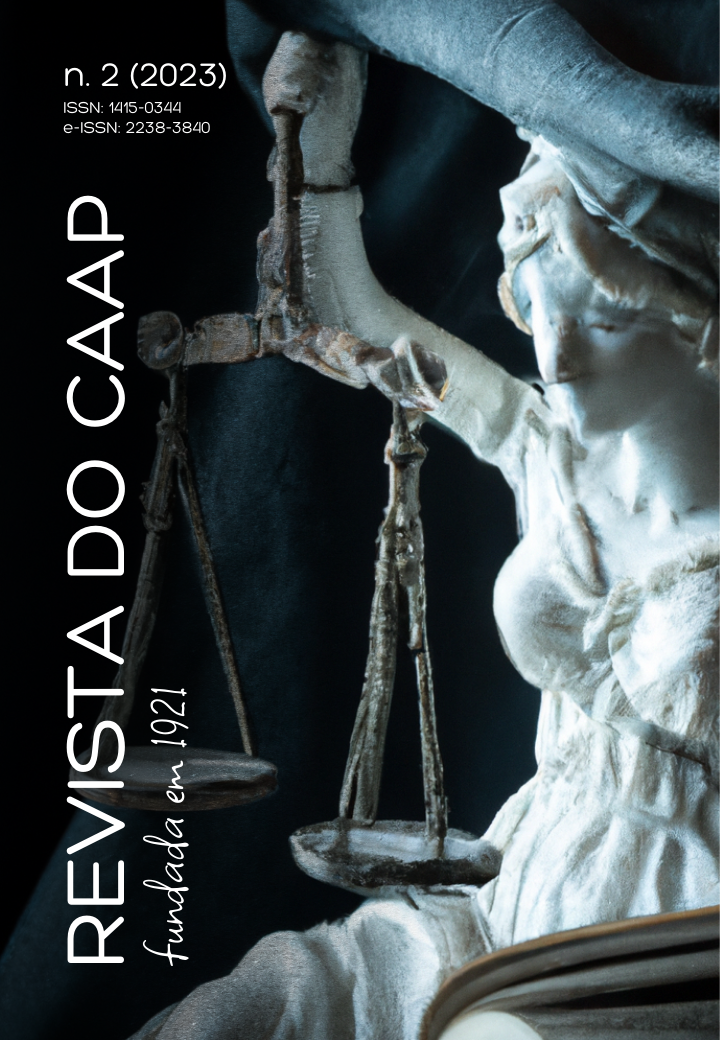Posthumous assisted reproduction and the succession rights of posthumously conceived children
DOI:
https://doi.org/10.69881/rcaap.v28i2.48151Abstract
Currently, Posthumous assisted reproduction (PAR) is one of the possible tools for implementing free family planning. Nevertheless, Brazilian law has not yet regulated the consequences of this practice, making the succession rights of a child conceived after the death of their parent uncertain. In this regard, the objective of this work is to demonstrate that, based on the principle of equality among children, a child conceived post-mortem has a legitimate inheritance claim and to advocate for the possibility of establishing a timeframe for their conception. The research is of a juridical-dogmatic nature, conducted based on data from legal doctrine, jurisprudence, current legislation, and bills. It is concluded that a child conceived through PMAR is among the mandatory heirs and can claim their share through an inheritance petition. However, it is necessary to establish a timeframe for conception in order to ensure the security of the coheirs.
Downloads
References
BITTAR, Carlos Alberto. O Direito Civil na Constituição de 1988. São Paulo: Revista dos Tribunais, 1990.
BODIN DE MORAES, Maria Celina. Na medida da pessoa humana: estudos de direito civil-constitucional. Rio de Janeiro: Renovar, 2010.
DINIZ, Maria Helena. Curso de Direito Civil Brasileiro: Teoria Geral do Direito Civil, 29 ed. São Paulo: Saraiva, 2021.
FERRAZ JUNIOR, Tércio Sampaio. Introdução ao Estudo do Direito: Técnica, decisão, dominação. 4 ed. São Paulo: Atlas, 2003.
GAMA, Guilherme Calmon Nogueira da. A nova filiação: o biodireito e as relações parentais. O estabelecimento da parentalidade-filiação e os efeitos jurídicos da reprodução assistida heteróloga. Rio de Janeiro: Renovar, 2003.
GAMA, Guilherme Calmon Nogueira da. Direito Civil, Técnicas de Reprodução Humana Assistida e a Resolução 2.013 do CFM. In: NETTO, Felipe Peixoto Braga; SILVA, Michael Cesar (orgs.). Direito Privado e Contemporaneidade: desafios e perspectivas do direito privado no século XXI. Belo Horizonte: Editora D’Plácido, 2014.
GAMA, Guilherme Calmon Nogueira da. Herança Legítima Ad tempus: tutela sucessória no âmbito da filiação resultante de reprodução assistida póstuma. São Paulo: Revista dos Tribunais, 2017.
LÔBO, Paulo. Direito Civil: Famílias, v. 5, 10ª ed. São Paulo: Saraiva Educação, 2020.
LÔBO, Paulo. Direito Civil: Sucessões. 4ª ed. São Paulo: Saraiva Educação, 2018.
MARQUES, Cláudia Lima. Igualdade entre os Filhos no Direito Brasileiro atual: direito pós-moderno? Revista da faculdade de direito da UFRGS, Porto Alegre, v. 16, [s. n], p. 21-40, 1999.
MAXIMILIANO, Carlos. Direito das sucessões. Rio de Janeiro: Freitas Bastos, 1942. v. 1.
OLIVEIRA, Guilherme de. Auto-regulação profissional dos médicos. Revista de Legislação e de Jurisprudência, Coimbra, v. 134, n. 3923, p. 34 - 40, 2001.
PERLINGIERI, Pietro. Direito civil na legalidade constitucional. Tradução: Maria Cristina de Cicco. Rio de Janeiro: Renovar, 2008.
RIBEIRO, Raphael Rego Borges. Reprodução assistida post mortem: a atribuição de direitos sucessórios aos filhos gerados após a morte de um dos genitores. 2016. 128 p. Dissertação (Mestrado em Direito) - Universidade Federal da Bahia, Salvador, 2016.
RIBEIRO, Raphael Rego Borges. Reprodução assistida post mortem e direitos sucessórios.
Revista de Direito de Família e Sucessão, Florianópolis, v. 6, n. 2, p. 20-40, jul/dez. 2020.
ROTONDANO, Ricardo Oliveira. O princípio da segurança jurídica: uma reconstrução conceitual em face das teorias neoconstitucionalistas. Revista Cientefico, [s.l.], v. 16, n. 33, p. 35-52, 2016.
SCHNEIDER, Caroline; SARTORI, Ellen Carina Mattias. Das consequências sucessórias da concepção post mortem: o direito fundamental à herança e o princípio da segurança jurídica. Revista de Direito de Família e Sucessão, [s.l.], v. 2, n. 1, p. 01-23, jul/dez, 2015.
SUPREMO TRIBUNAL FEDERAL. Súmula 149: é imprescritível a ação de investigação de paternidade, mas não o é a de petição de herança. Data de aprovação: Sessão Plenária do dia 13 dez. 1963.
SUPERIOR TRIBUNAL DE JUSTIÇA, 4° Turma, RESp n° 1.918.421-SP. Ministro Relator Marco Buzzi, julgado em 08 jun. 2021.
TEPEDINO, Gustavo. Ativismo judicial e construção do direito civil: entre dogmática e práxis. Revista Novos Estudos Jurídicos, [s.l.], v. 24, n. 1, p. 22-52, jan./abr. 2019.
TEPEDINO, Gustavo; NEVARES, Ana Luiza Maia; MEIRELES, Rose Melo Vencelau. Fundamentos do direito civil: direito das sucessões. 4 ed. Rio de Janeiro: Forense, 2023.
TEPEDINO, Gustavo; TEIXEIRA, Ana Carolina Brochado. 2 ed. Fundamentos do direito civil: direito de família. Rio de Janeiro: Forense, 2021.
Published
How to Cite
Issue
Section
License
Copyright (c) 2024 Marina Guimarães Rufato, Flávia Silveira Siqueira

This work is licensed under a Creative Commons Attribution 4.0 International License.


